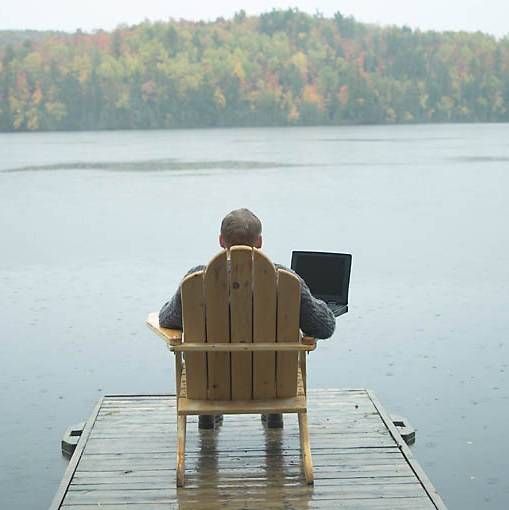September 13, 2018
Working long and hard? It may do more harm than good for your productivity and wellbeing
 Nearly half of people in the EU work in their free time to meet work demands, and a third often or always work at high speed, according to recent estimates. If you are one of them, have you ever wondered whether all the effort is really worth it? Employees who invest more effort in their work report higher levels of stress and fatigue, along with lower job satisfaction. But they also report receiving less recognition and fewer growth opportunities. And they experience less job security. So increased work effort not only predicts reduced wellbeing, it even predicts inferior career-related outcomes.
Nearly half of people in the EU work in their free time to meet work demands, and a third often or always work at high speed, according to recent estimates. If you are one of them, have you ever wondered whether all the effort is really worth it? Employees who invest more effort in their work report higher levels of stress and fatigue, along with lower job satisfaction. But they also report receiving less recognition and fewer growth opportunities. And they experience less job security. So increased work effort not only predicts reduced wellbeing, it even predicts inferior career-related outcomes.


















 The latest generation of workplace recruits, the so-called Gen Z graduates, are more likely to stay in their first role if flexible working and mentoring is on offer, new research claims. According to graduate jobs board Milkround, while over half (55 percent) of new graduates’ plan to stay in their first role for less than two years, 76 percent can be encouraged to stay longer with training/mentorship and 63 percent with flexible hours. They are also ambitious and have high expectations, with 65 percent believing they will work in their dream industry. This impacts what is expected of employers and could hold the key to encouraging this new generation to stay in roles longer. This change in expectations begins before they start their new role – 68 percent of graduates are calling for more detailed job descriptions and 57 percent would like to have an open line of communication with their line manager from the moment they accept a job.
The latest generation of workplace recruits, the so-called Gen Z graduates, are more likely to stay in their first role if flexible working and mentoring is on offer, new research claims. According to graduate jobs board Milkround, while over half (55 percent) of new graduates’ plan to stay in their first role for less than two years, 76 percent can be encouraged to stay longer with training/mentorship and 63 percent with flexible hours. They are also ambitious and have high expectations, with 65 percent believing they will work in their dream industry. This impacts what is expected of employers and could hold the key to encouraging this new generation to stay in roles longer. This change in expectations begins before they start their new role – 68 percent of graduates are calling for more detailed job descriptions and 57 percent would like to have an open line of communication with their line manager from the moment they accept a job.
 We reported
We reported 
 The majority of UK employees check their work emails while on holiday despite the fact that their employers do not want or expect them to keep in touch, new YouGov research has revealed. It seems the majority (60 percent) of those who use email for work check their inboxes while on holiday. One in four (25 percent) check ‘very often’, one in five (19 percent) check ‘sometimes’, and one in six (16 percent) check ‘rarely’. Just four in ten (40 percent) say they never look at their emails. This is despite the fact that eight in ten workers (80 percent) would prefer to ‘completely switch off’ when they’re on holiday, rather than stay on top of what’s going on in the office. The exception is those who check their emails ‘very often’. Half of this group (47 percent) say they’d rather stay on top of what’s going on at work, with the other half (50 percent) happy to stay out of work issues while on vacation. The research suggests however that fewer than one in six think their managers care whether they stay in touch or not.
The majority of UK employees check their work emails while on holiday despite the fact that their employers do not want or expect them to keep in touch, new YouGov research has revealed. It seems the majority (60 percent) of those who use email for work check their inboxes while on holiday. One in four (25 percent) check ‘very often’, one in five (19 percent) check ‘sometimes’, and one in six (16 percent) check ‘rarely’. Just four in ten (40 percent) say they never look at their emails. This is despite the fact that eight in ten workers (80 percent) would prefer to ‘completely switch off’ when they’re on holiday, rather than stay on top of what’s going on in the office. The exception is those who check their emails ‘very often’. Half of this group (47 percent) say they’d rather stay on top of what’s going on at work, with the other half (50 percent) happy to stay out of work issues while on vacation. The research suggests however that fewer than one in six think their managers care whether they stay in touch or not.










September 6, 2018
Creating a productive workplace for people is all about context
by Mark Eltringham • Comment, Facilities management, Workplace, Workplace design
(more…)